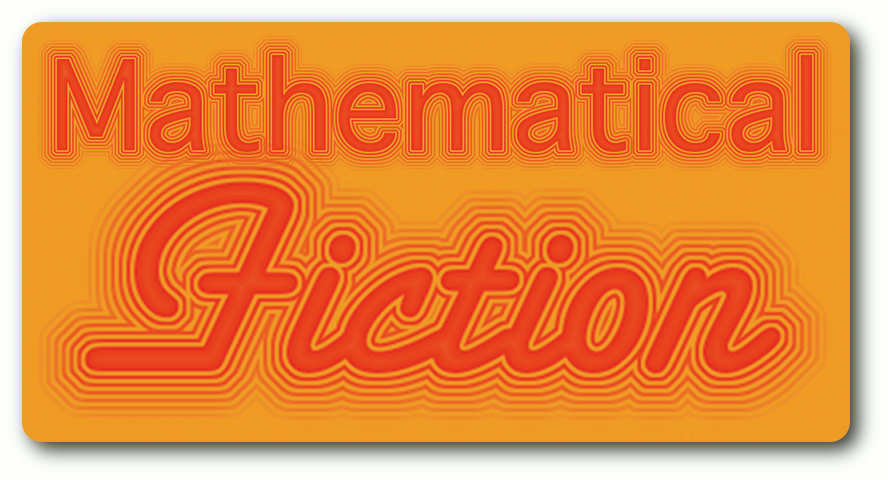| When they were young, Roger (who lives in Cambridge MA and loves words) and Dodger (who lives in Palo Alto and loves math) had a psychic link that allowed them to see through each other's eyes, and to help each other with their homework. Suspiciously, they were also born on the same day and had the same strange eyes (although Roger was colorblind while Dodger had problems with depth perception.) But, as they grew older, adults convinced each of them that the other had never actually existed. Then, they meet up again as graduate students at UC Berkeley, and that's when the adventure really begins. Their similarities were no coincidence or accident. As they soon learn, Roger and Dodger had been created by a society of alchemists with an evil goal.
The plot and the way the twins interact in this book is really cool. Unfortunately, the author was not really able to capture the supposed power that Roger and Dodger had in their respective fields. We are told that Roger is not just good but amazing with words, but most of the time his dialogue seems quite ordinary, and at other times he sounds like a talking thesaurus. There are people who are amazing with words, but I would not know that Roger was if I hadn't been told. And, Dodger is similarly supposed to be supernaturally amazing at math. At one point, she is able to escape after being tied up with ropes by doing some sort of calculation, which is impressive I suppose. But, the absence of any mathematical detail makes it difficult to appreciate. We're told that at age 9 she solved the "Monroe Equation", earning her at $10,000 prize. but we never learn what the Monroe Equation is or how she solved it, only that she wrote her answer with colored pens.
The stereotype that mathematical ability goes along with social inability is not only stated once, but repeatedly through the book. Dodger's parents, her classmates in school, other graduate students at Berkeley, and even Dodger herself say over and over again how she is unable to make friends. At one point, there is even the suggestion that math is not compatible with life:
| (quoted from Middlegame)
She's tired of adults treating her like a circus sideshow and other kids treating her like a freak. (They're not the same, not quite: to the adults, she's the strongman, the fire-eater, the girl who dances on the trapeze without a net.
to the kids, she's the bearded woman, the lobster-girl. The adults gape and whisper because of what she can do. The kids her own aged it because of what she is. They're both right and they're both wrong and she's exhausted from the effort of trying to make them understand. She's tired of being lonely, and having Roger back in her life has made things worse when it should have made them better, because she always thought he was the same as she was, but he's not, he's not. He has friends. He has people. He has a life. And she has numbers and figures, and math enough to redefine the sky.
|
A few other quick remarks:
- MSRI gets mentioned briefly.
- When arriving at grad school, Dodger lists dynamical systems, probability, chaos theory and game theory as her interests.
- Apparently, being good at math not only makes one bad at language but also at handling ambiguity and metaphor. Roger tries to teach Dodger about metaphors and compliments her when she comes up with one to explain time zones. Unfortunately, it is a terrible metaphor that leaves me wondering whether the author misunderstands it herself. (It is true that it takes light time to travel, but that has nothing to do with time zones! And the transition from day to night on Earth is not like water surrounding an orange as it sinks into a swimming pool!)
This is an entertaining adventure with some very cool scenes. McGuire did not win Hugo, Nebula, and Locus awards without knowing how to spin a good yarn! But, as a work of mathematical fiction I'm afraid it falls short because it has nothing to offer aside from a worn-out stereotype.
|


